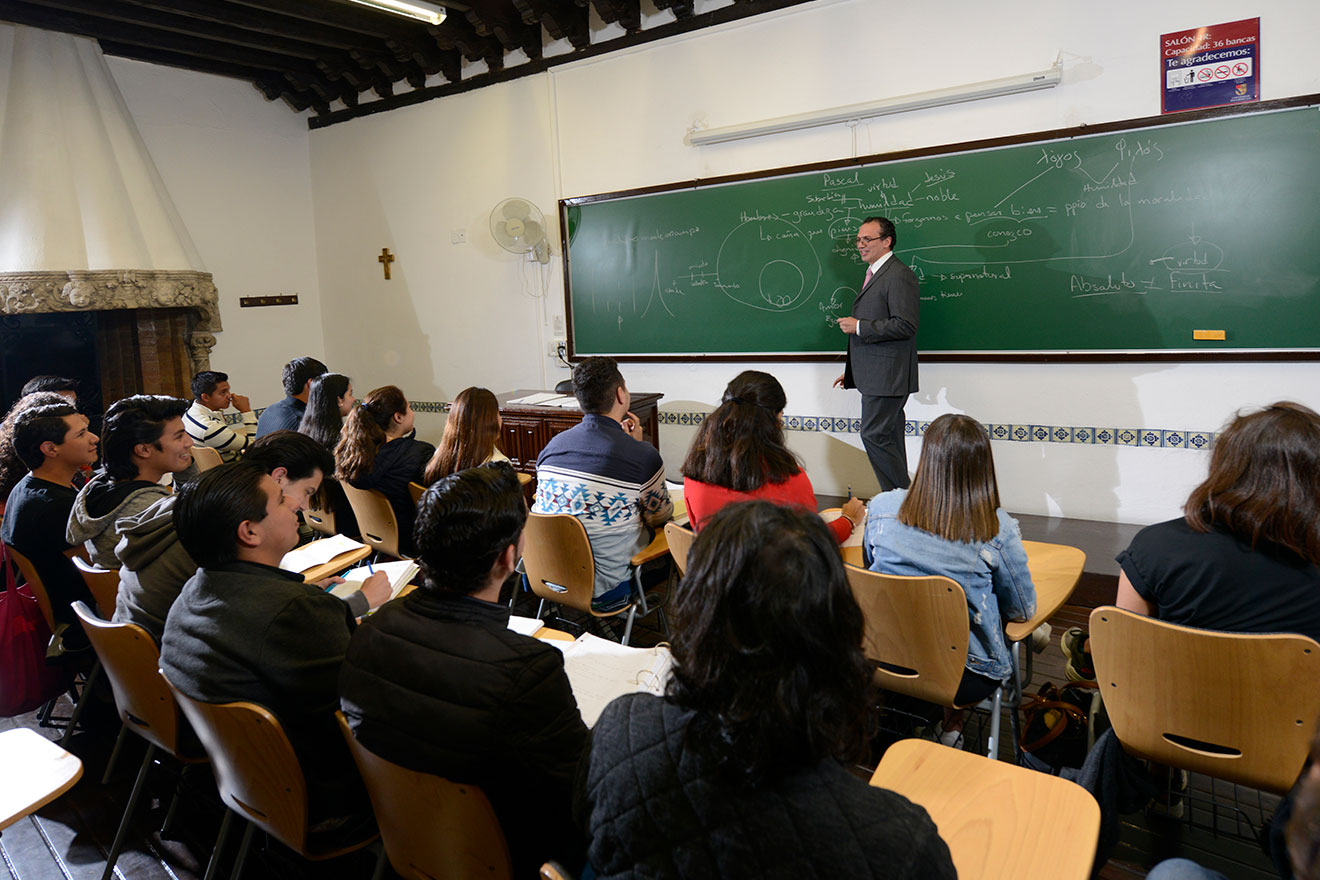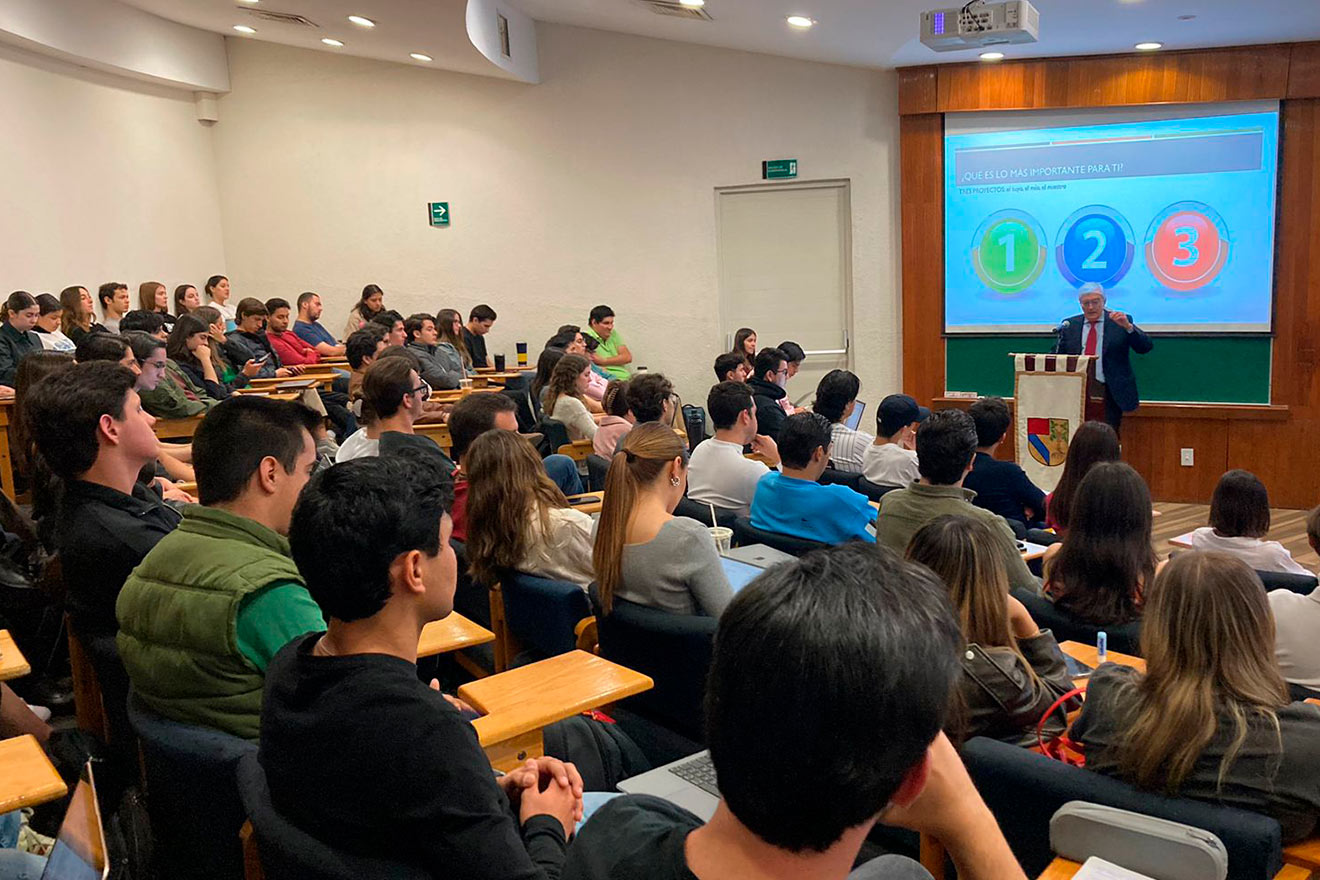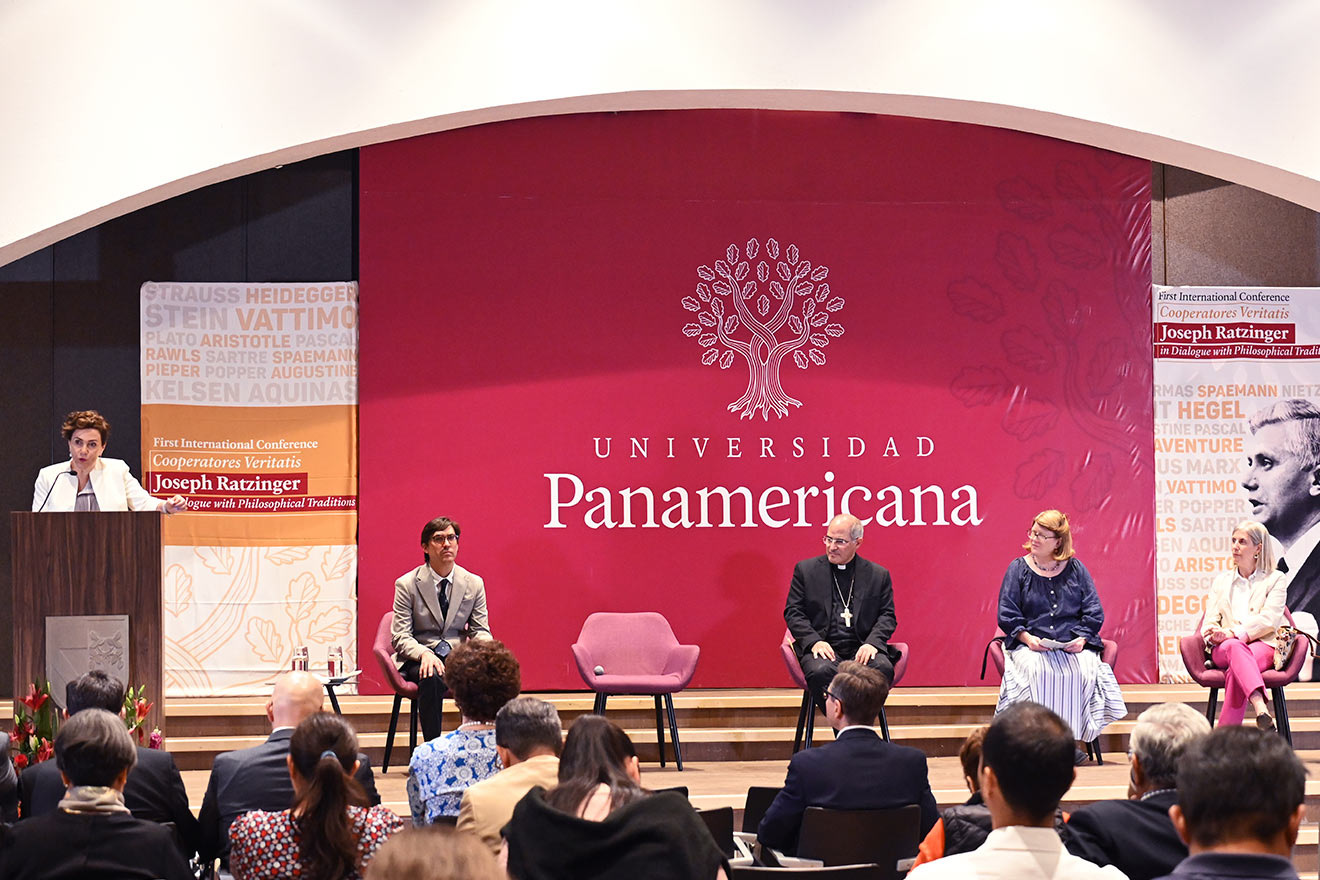Mexico City, April 2, 2024.- On March 11 and 12, Mexico City received Professor Axel Honneth, one of the most important figures of the third generation of the Frankfurt School and former director of the Institute for Social Universidad Panamericana received Professor Axel Honneth, one of the most important figures of the third generation of the Frankfurt School and former director of theInstitute for Social Research(Institut für Sozialforschung) of the University of Frankfurt, who discussed his contributions to social philosophy from his theory of recognition and organization of society.
His visit was organized by Dr. Cecilia Coronado, deputy director of the Institute of Humanities, as part of the project Justice and social regeneration: critical analysis of the notions of social freedom and recognition in the thought of Axel Honneth, and supported by the Fondo Fomento a la Investigación UP.
Work and democratic citizenship
After the inauguration by Dr. Alberto Ross, Director of the Institute of Humanities, the conference began with a lecture by Professor Honneth, Work and democratic citizenship: a political-philosophical account.
During the conference, Honneth reflected on the repercussions that poor working conditions have on the democratic participation of members of society.
According to what he said, it is not enough to assume that citizens are already members with the same possibilities of participation, but we must understand how working conditions affect the political association between people.
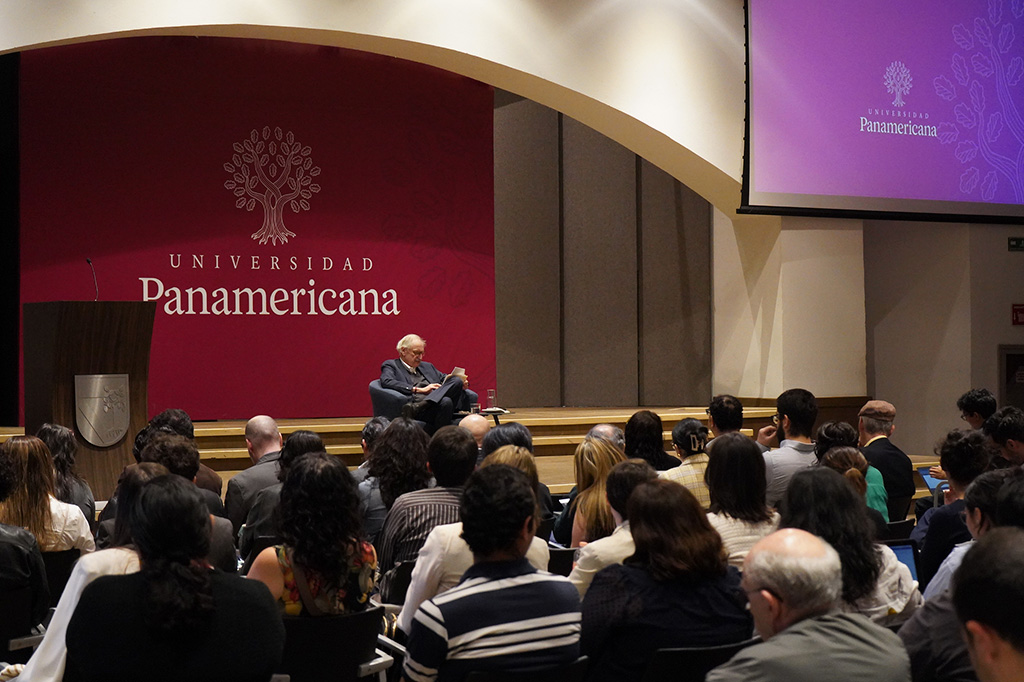
One example is how economic precariousness prevents individuals from participating in democratic life, because they have more urgent responsibilities to attend to. Starting from this premise, Honneth reviewed various positions on work and its shortcomings in the face of this challenge.
Finally, he stated that it is necessary to establish certain minimum thresholds to ensure that work is not an impediment, but a promoter of people's political and democratic activity .
After establishing the labor conditions for free citizen participation, Honneth acknowledged that he has not yet found certain answers to these dilemmas. However, he set out some possible ways to confront them.
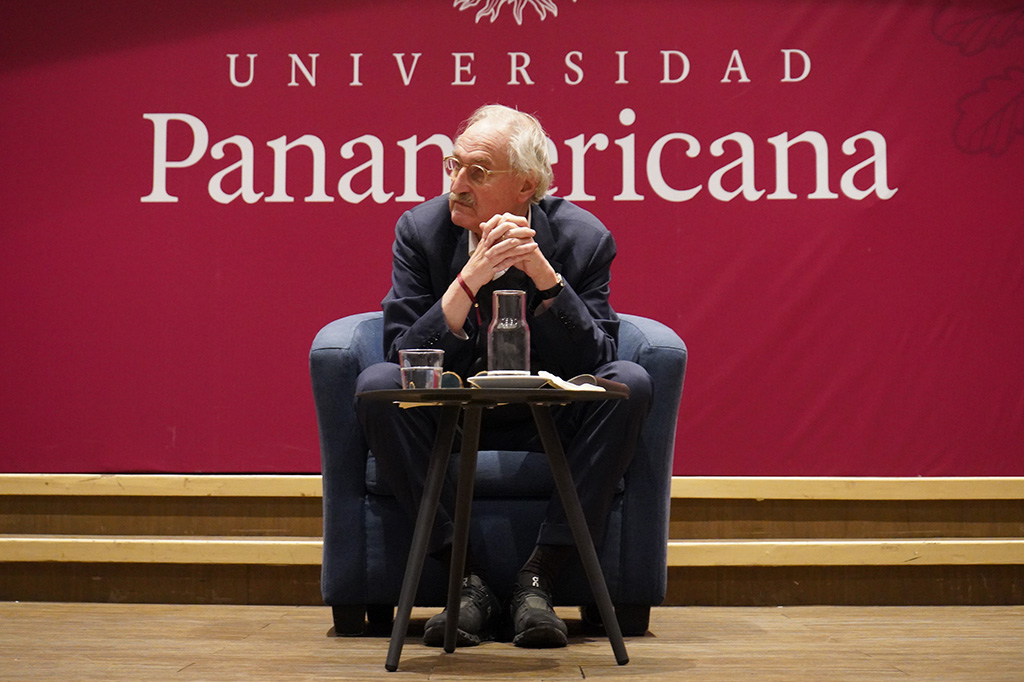
Analysis of the ideas of Axel Honneth
The conference continued with an academic colloquium that served as a platform for the exploration and analysis of the ideas presented by Honneth during his keynote lecture, as well as other crucial concepts of his work, such as recognition, justice and freedom, with the aim of deepening the theoretical paths for social reconstruction.
Professors from the Institute of Humanities and the School of Philosophy at Panamericana, together with leading academics from other national and international institutions, participated in discussions with Honneth himself on his theoretical approaches.
The colloquium was organized into five discussion tables. In the first one, Oliver Kozlarek, from the Universidad Michoacana de San Nicolás de Hidalgo, delved into Socialism as an Idea? - A Dialogue with Axel Honnethin which he reflected on the need to rethink socialism today.
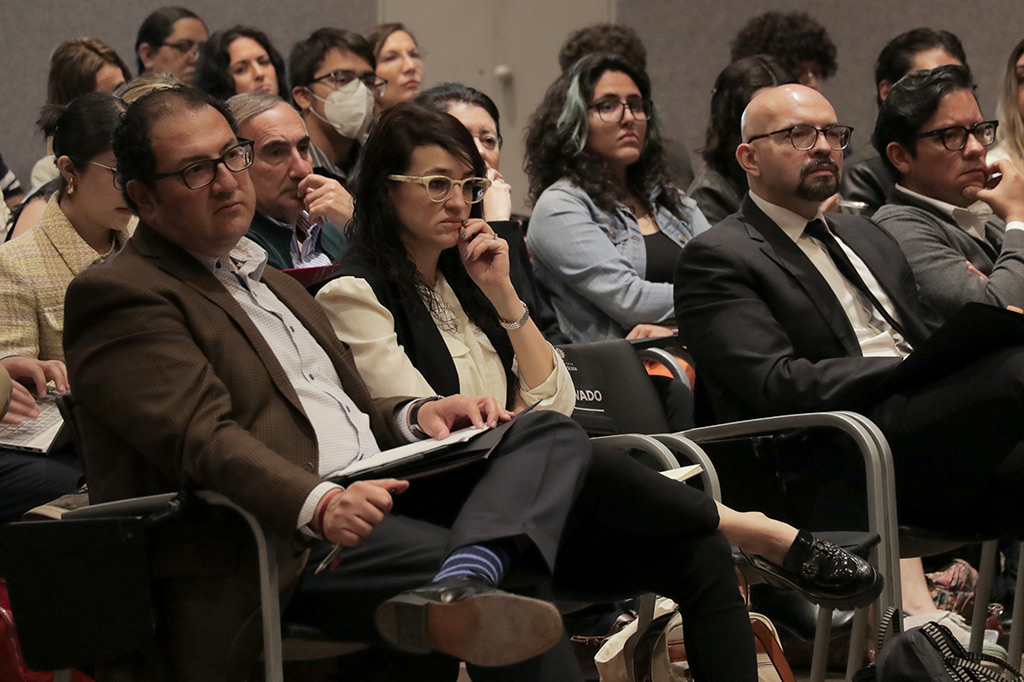
Montserrat Herrero, from the University of Navarre, delved into The Crossroads of Critical Theory Confronting the Philosophy of Historywhere she highlighted the relationship between Honneth's critical theory and the Philosophy of History, focusing on contributions from Walter Benjamin and Hegel.
Meanwhile, at the end of the first day, Cecilia Coronado and Luis Xavier López-Farjeat, from Universidad Panamericana, presented Victims, Testimony, and the Path to Recognitionwhere they analyzed the potential of victims' testimonies to achieve recognition and reparation.
On the other hand, Diana Ibarra, an academic from Panamericana, addressed the theme Work and Recognition: Key Factors for the Dignification of Women's LaborShe highlighted the importance of dignifying domestic and care work from the perspective of recognition.
The second day began with discussions by Gustavo Leyva, from the Universidad Autónoma Metropolitana; and Benno Herzog, from the University of Valencia; who debated on Recognition and Work and Work as a Concept of Exclusion and Disrespect: The Flip Side of Recognition, respectively, delving into the complexities of work in contemporary society.
To conclude the event, Cecilia Gallardo Macip, from Universidad de los Andes, and Mercedes Espinosa, from Panamericana, presented the following postgraduate papers A Yearning for Recognition: The Reification of Surrogates y Representation and Recognition: New Voices in the Entertainment Industry. A Space for Socio-Political Inclusionrespectively, addressed fundamental aspects of Honneth's theory and its relevance in various social and cultural spheres.
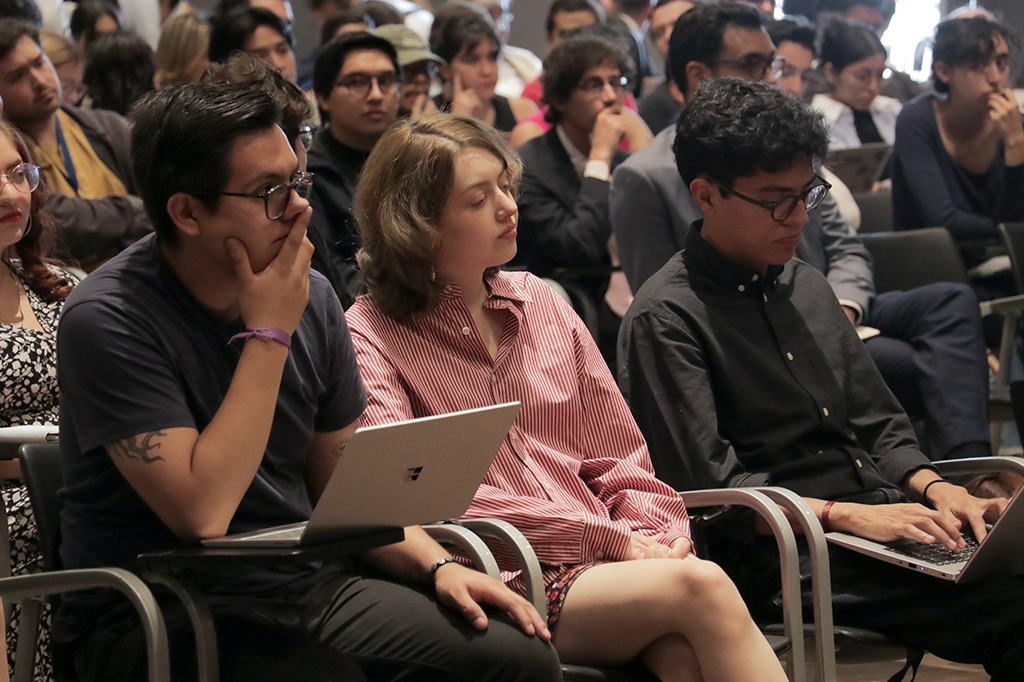
Enriching learning space
This colloquium provided an enriching learning space for both academics and student participants. Details will soon be revealed about the book that will emerge from these two days of academic discussion and reflection, where we had the privilege of debating with Axel Honneth in person.
Learn more about the Institute of Humanities at: https://www.up.edu.mx/educacion-universidad-instituto-de-humanidades/



